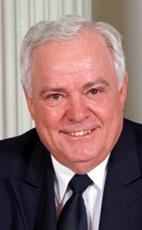Mr. Speaker, we have before us a non-votable motion, which allows us to state our intentions if that motion were some day to be voted on in the House.
In our opinion, the text the mover submitted to us in amendment today would have been more acceptable than the one we have to debate on.
Unfortunately, the change itself was unacceptable today. Since 100 members had signed to indicate their support for the bill, we could not today, out of respect for those 100 members, accept to debate a different text from the one already accepted.
Since the motion is non-votable and since the member who moved it will eventually come back in the next parliament with a proposal that hopefully will be made votable, we will nevertheless say what we think about the text now before us.
There is no doubt that we would be in favour of a means of recognizing the dedication of the members of the Canadian armed forces. We must not recognize the dedication of only the current members of the Canadian armed forces, as there are also former members who are now retired and for whom there is no recognition day.
We have a recognition day for veterans, Remembrance Day, for those who were killed in action, who gave their lives to defend the freedom of our people.
There are also those who, fortunately, did not have to pay the ultimate price, but who nevertheless put their lives at risk. These people were members of the Canadian forces for years. Their contribution should also be recognized on certain days.
These people took part in peacekeeping missions abroad. They may have helped during catastrophes in Canada. They may have done exactly the same job, without losing their lives. They are as deserving of our recognition as those who died.
The question is whether, in order to recognize all these people, we should have three special days during the year: one for the veterans who died at war, one for those who did not die but spent years with the Canadian forces in the service of the nation, and another for those who are currently in the Canadian forces. It would never end.
This issue should be examined by a committee. We could look at how the contribution of these people could be acknowledged on one or two specific days. I believe that in some countries one day is set aside to remember those who died at war, and another one is reserved for the country's armed forces. Perhaps we will come to the conclusion that two days are needed but, in my opinion, that second day should not only include current members of the Canadian forces, but also former ones.
The motion before us talks about the “contribution of the Canadian Forces to the protection of Canadian sovereignty”. I think it inaccurate to seek a day of commemoration for this reason, Canadian sovereignty having never been threatened. No foreign power wants to attack Canada. No foreign power has threatened Canada's sovereignty.
Why would we set aside a day to pay tribute to those who have never had to fight to protect Canadian sovereignty, which has never been threatened? The sovereignty of a country is threatened when the citizens of that country no longer want it. That is the only situation in which that sovereignty can be threatened, and only a country's citizens may decide to retain or modify their sovereignty.
This is something that could happen, because the people of Quebec, who are in favour of Canadian sovereignty without wanting to be a part of it, would like to be a sovereign nation themselves. One day would have to be found to defend and celebrate Quebec's sovereignty, and another to celebrate Canada's sovereignty. There would be two different days and I am sure that all Quebecers would be happy, under those circumstances, to observe these two days to celebrate the sovereignty of two peoples who deserved to exist, the Canadian people and the people of Quebec.
Unfortunately, these are my last words in this august assembly. I will not be a member in the next parliament, because I am not seeking a new mandate. It was a great honour, during these seven years, to defend the interests of my country, Quebec. I was very struck by the democracy which reigns in this place, a democracy which we would like to see continue in the nation we are seeking.
I was also extremely proud to serve the inhabitants of the very lovely and large riding of Joliette. I hope that my successors will enjoy themselves here as much as I have, that their stay will be as short as possible, and that they too will continue to defend the sovereignty of our wonderful nation, Quebec.

